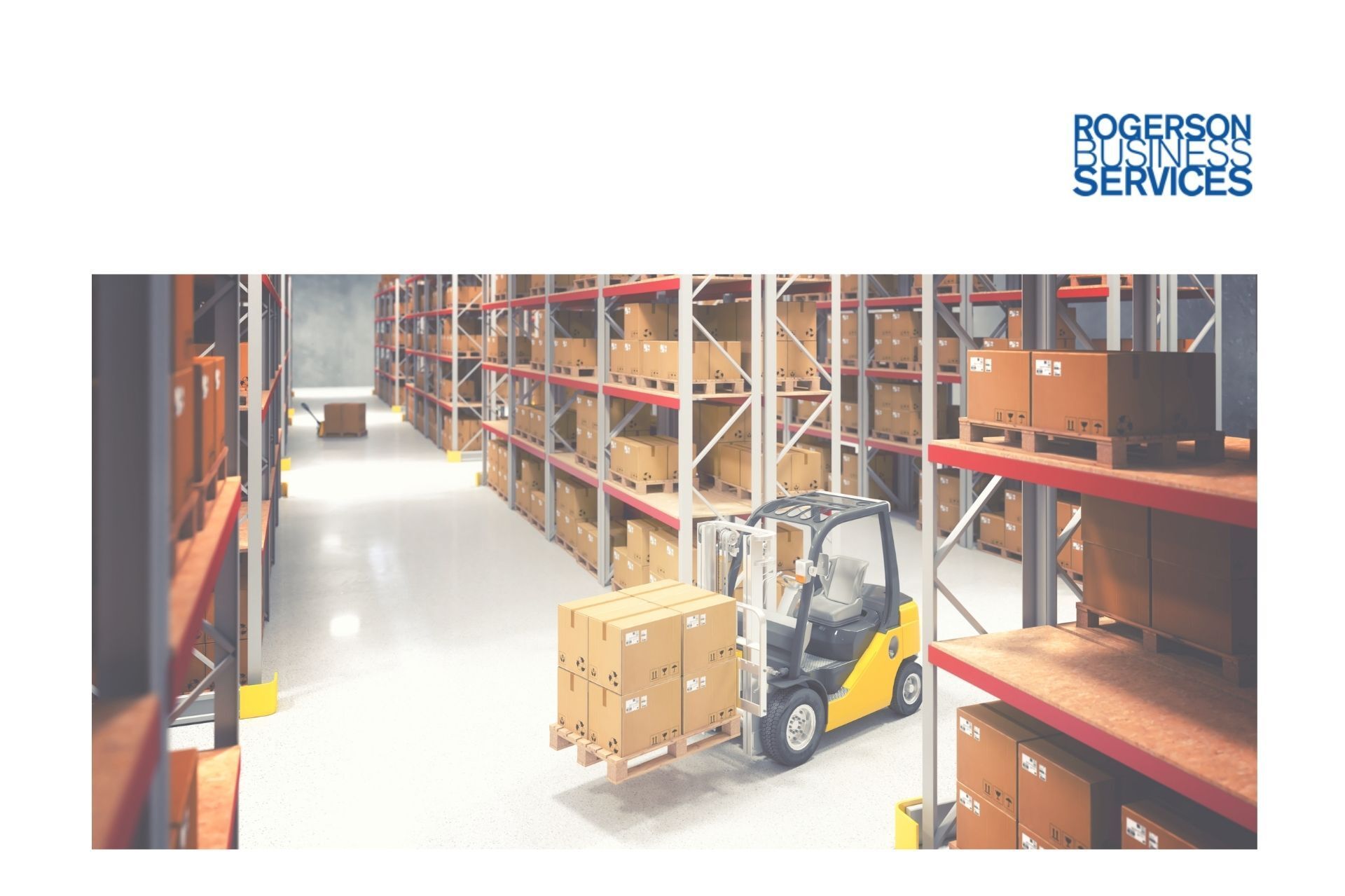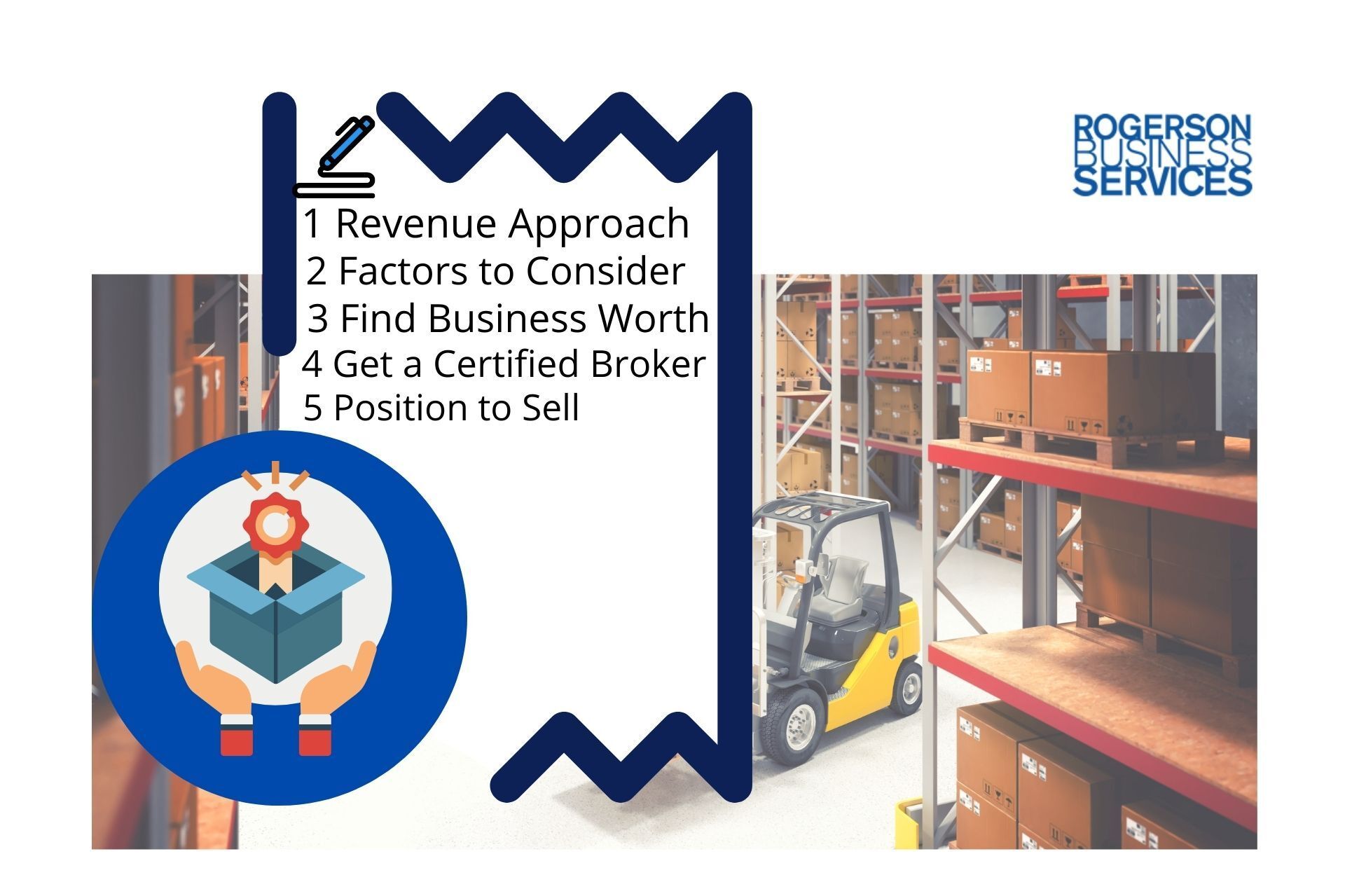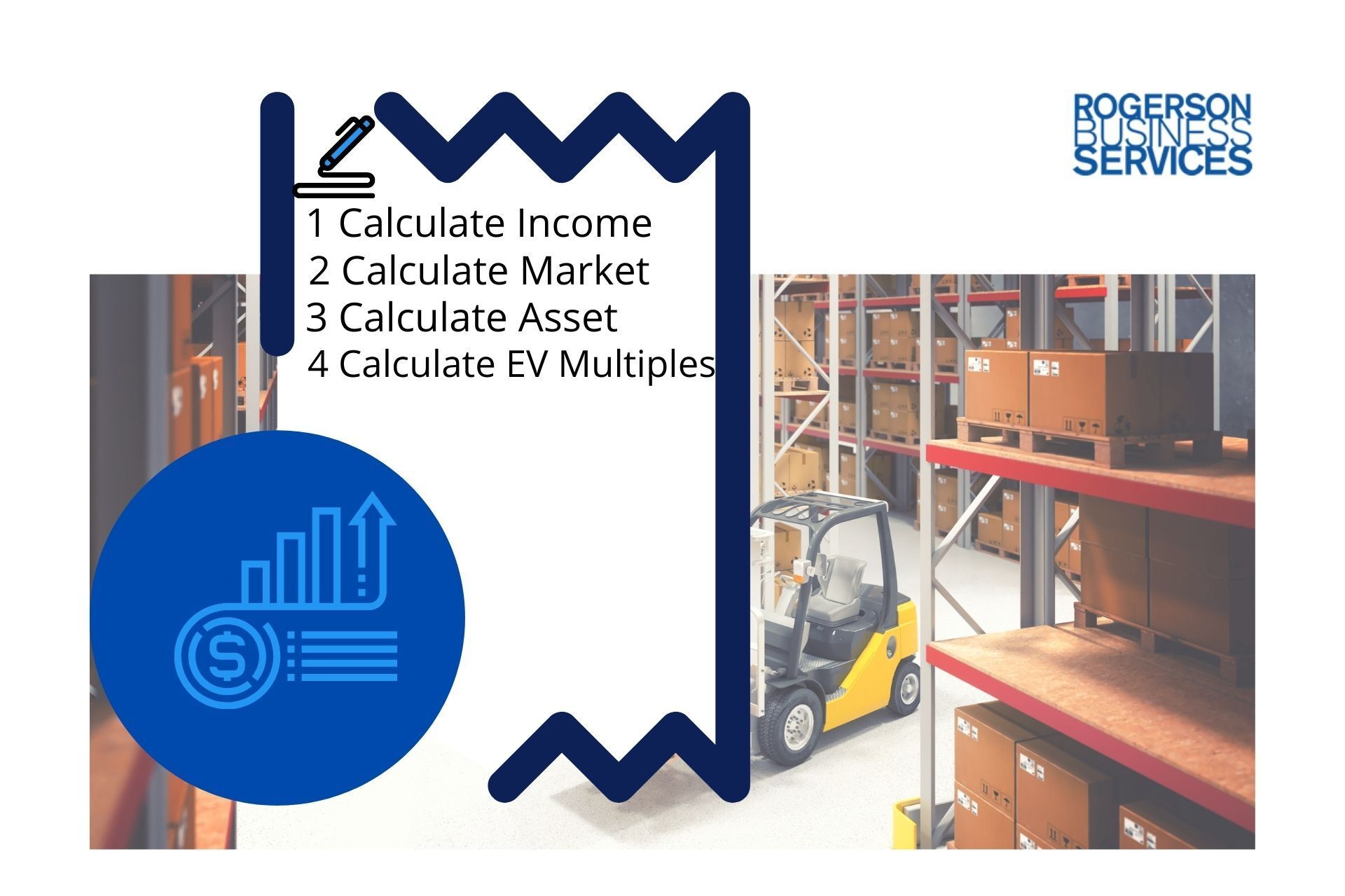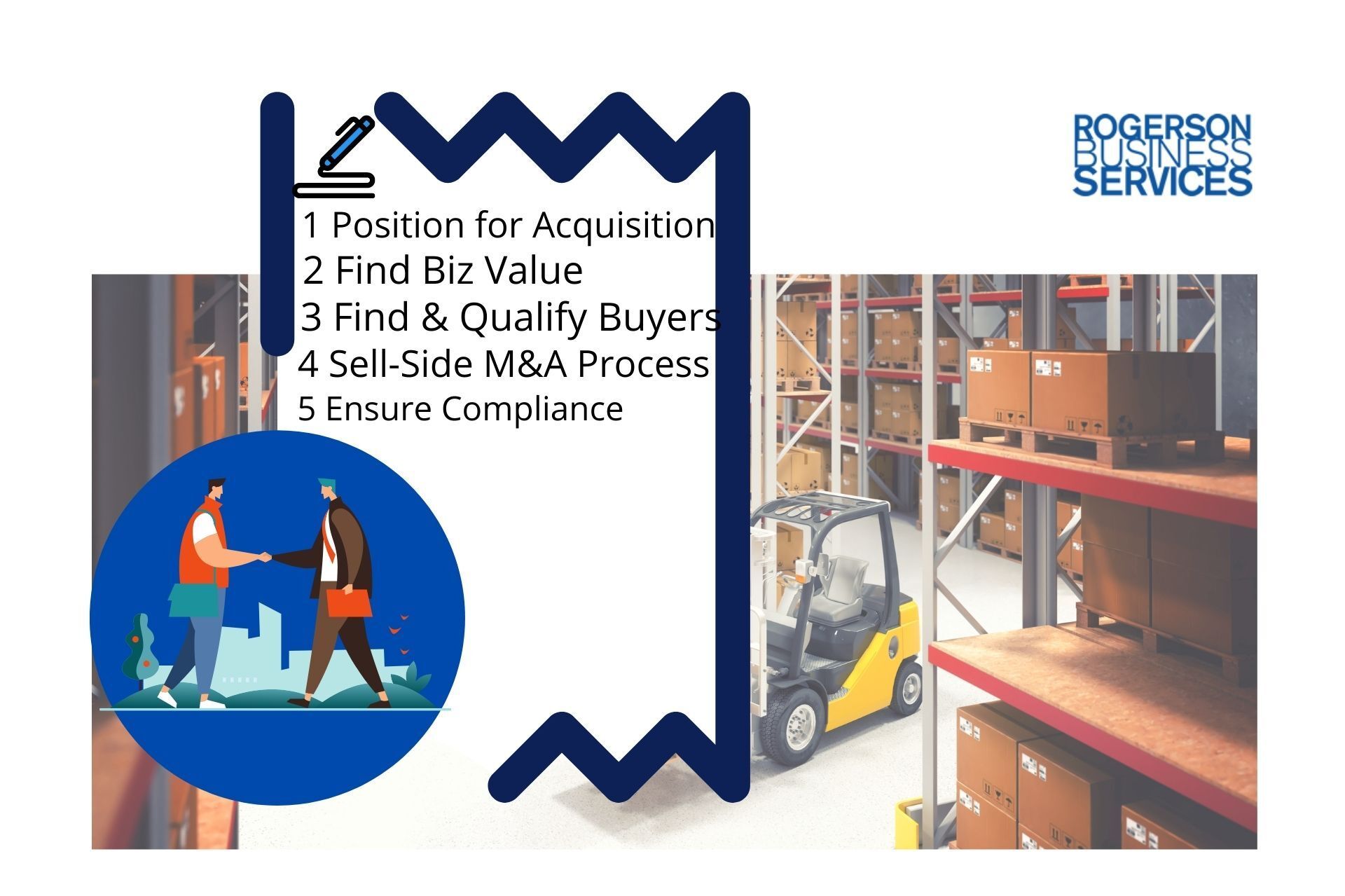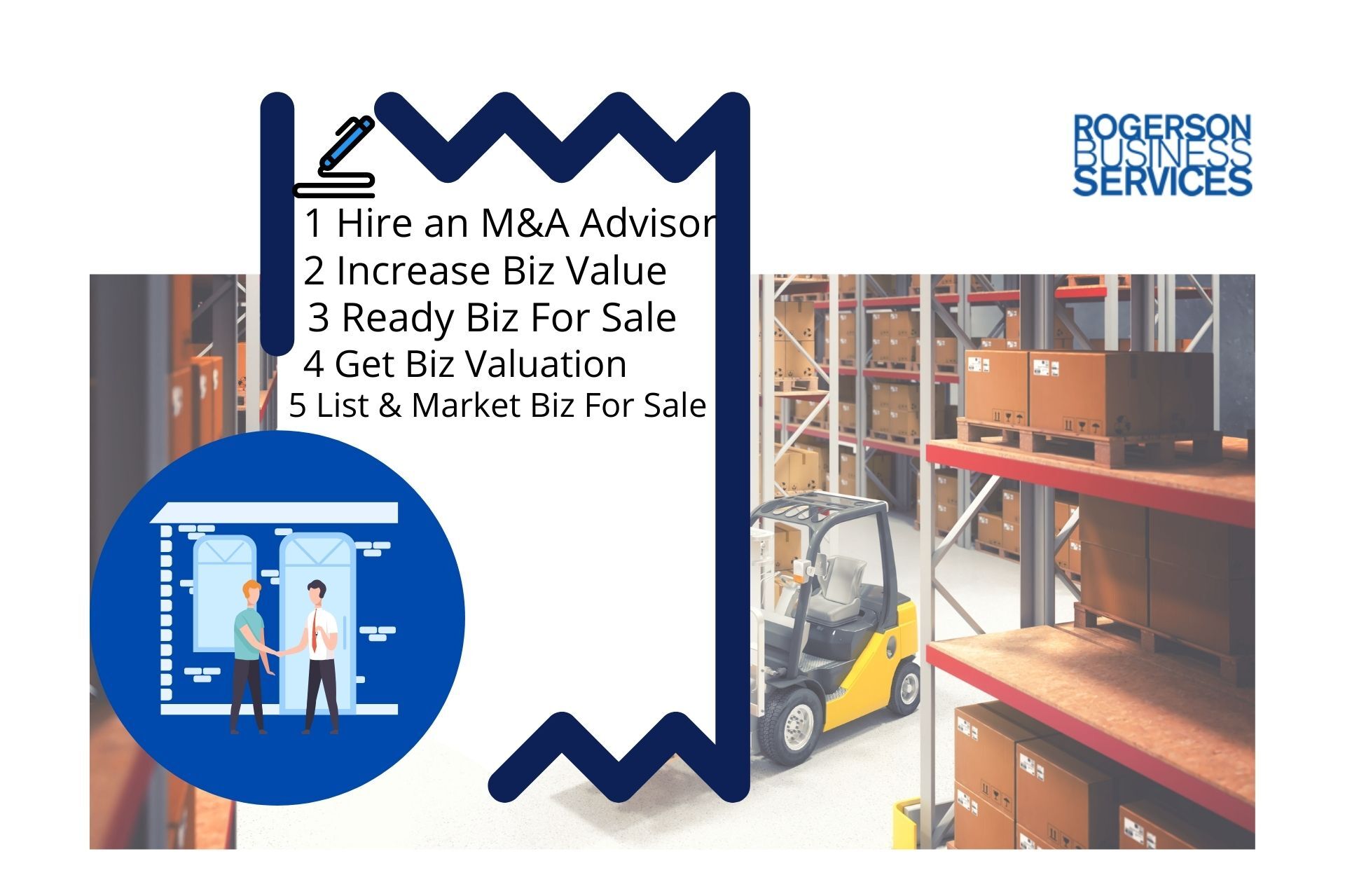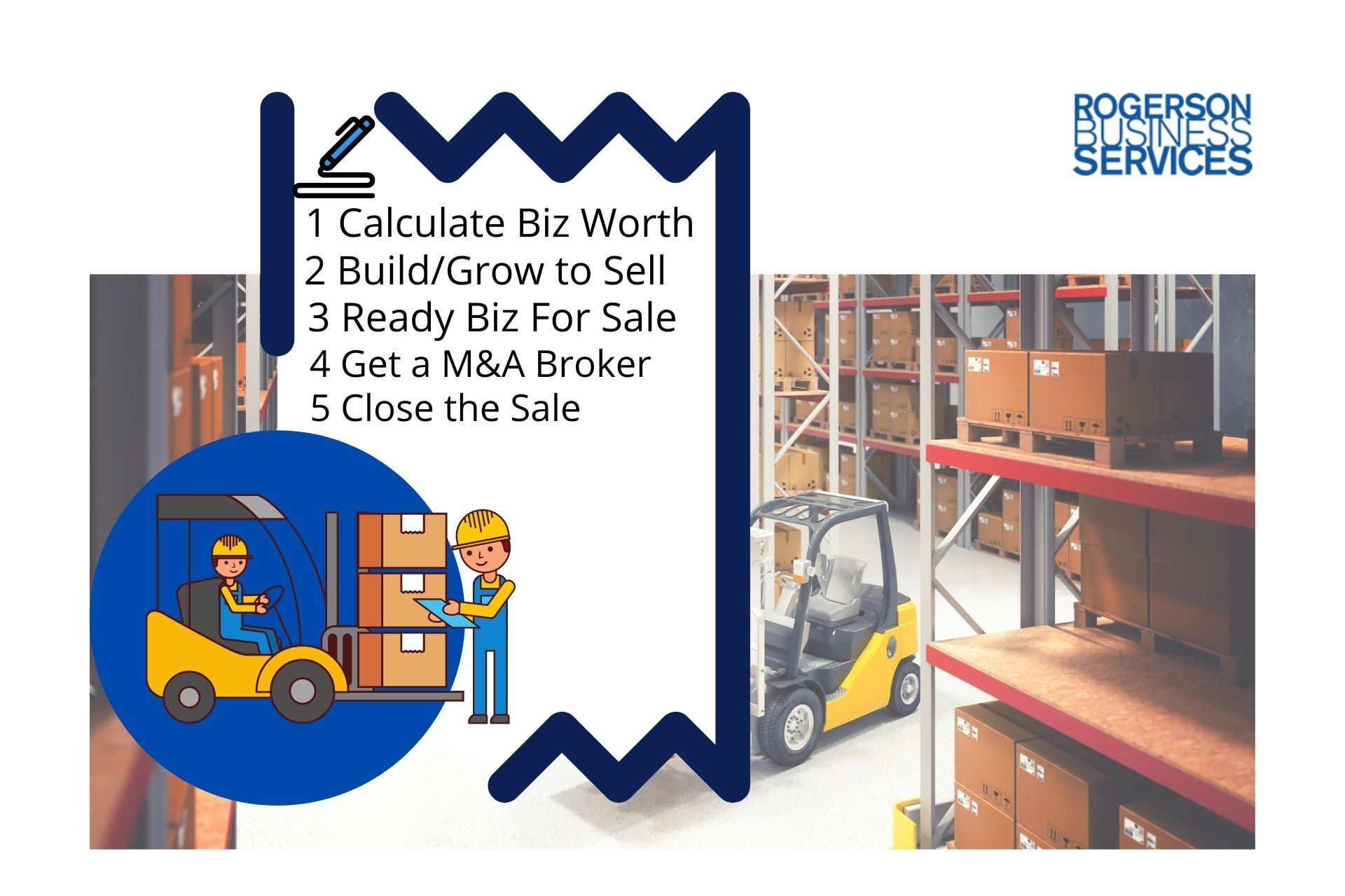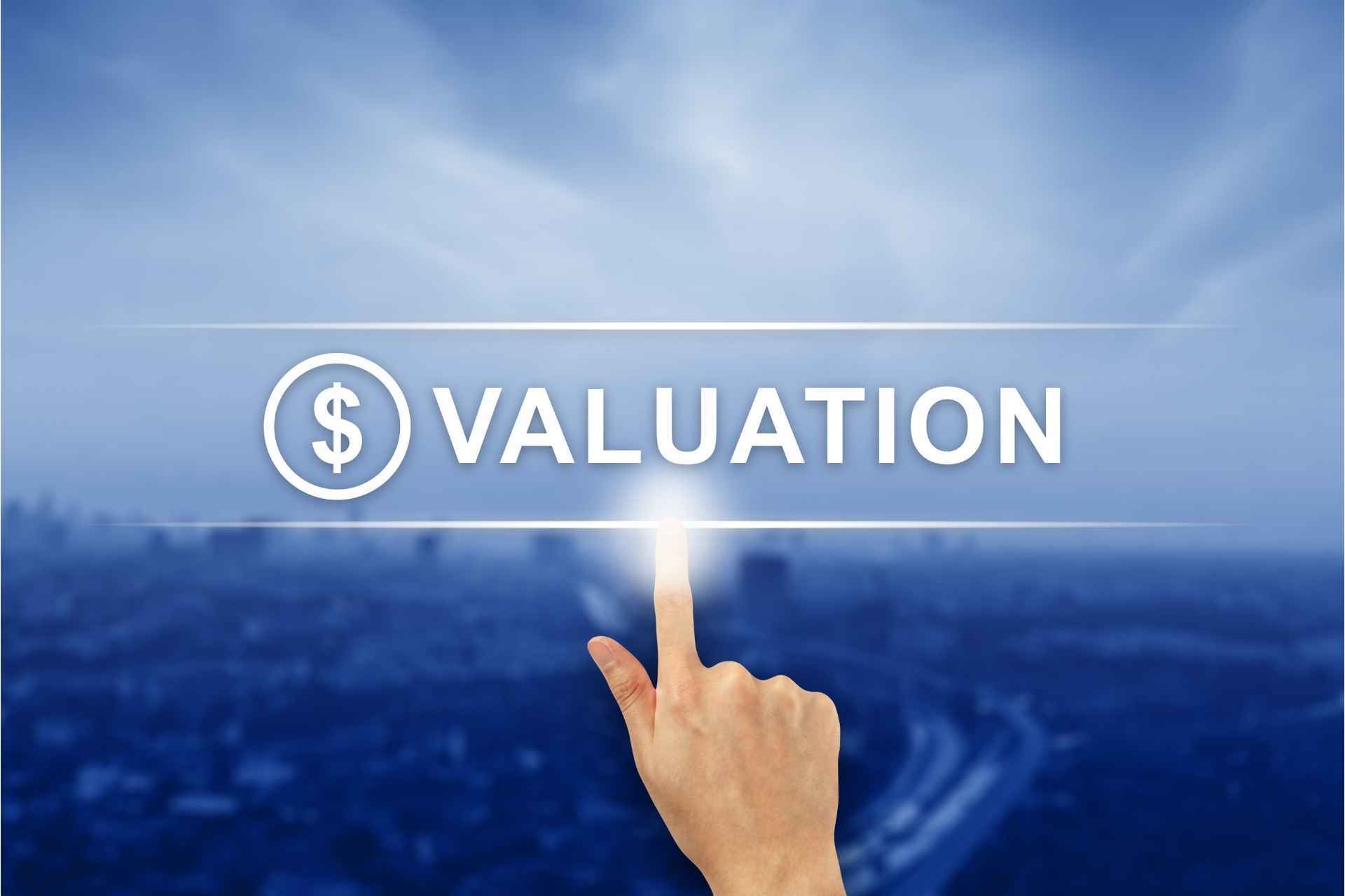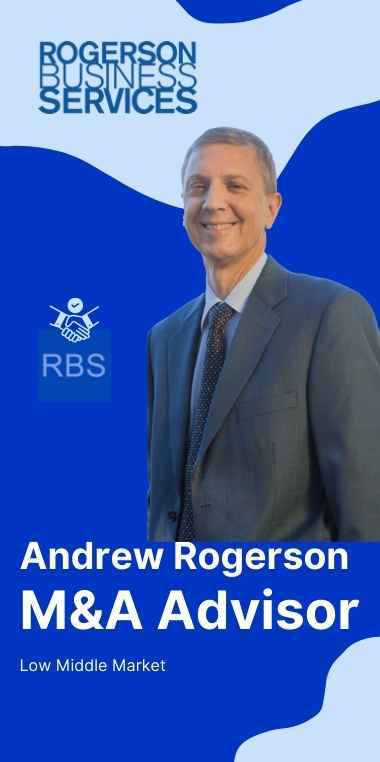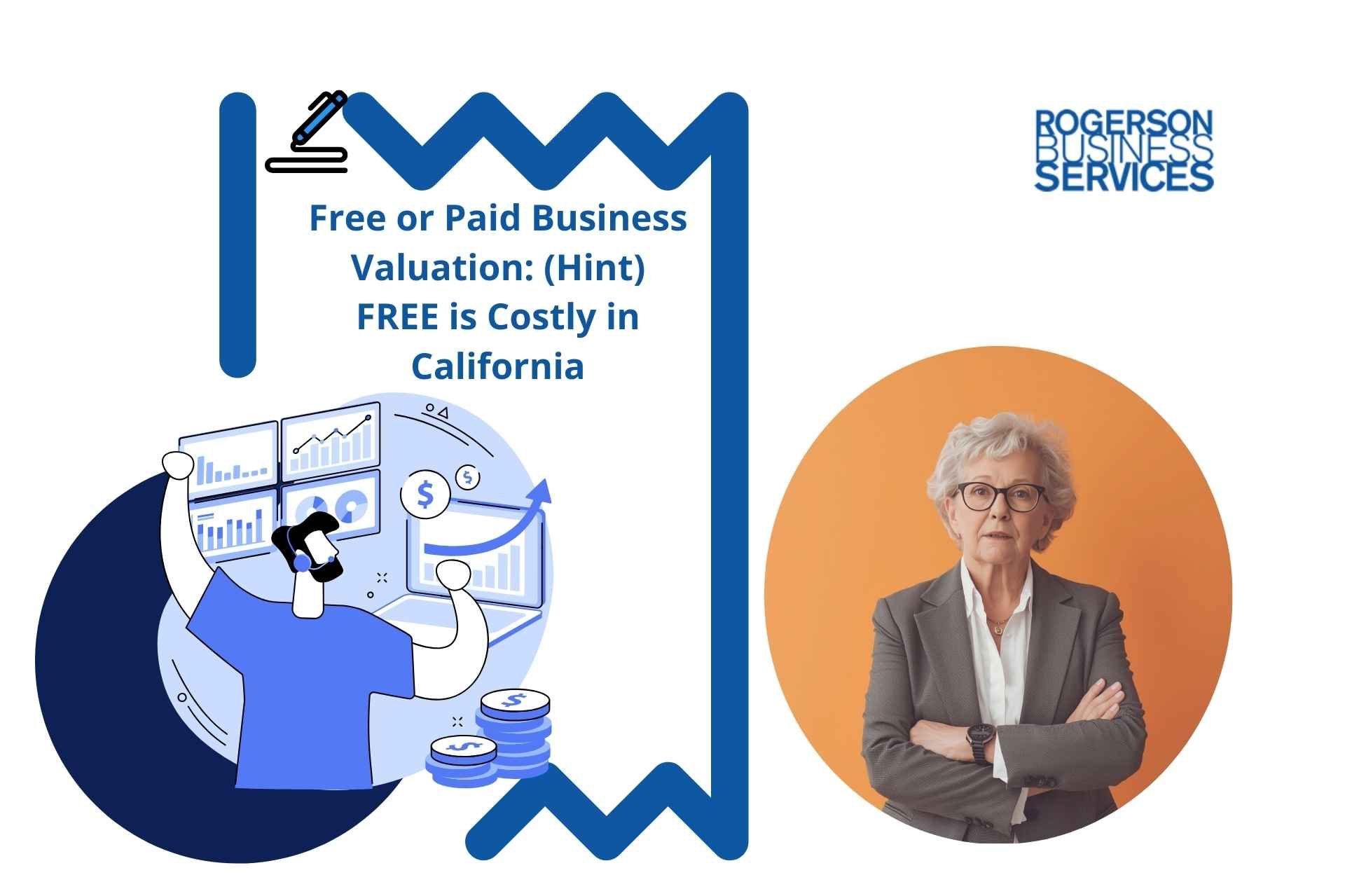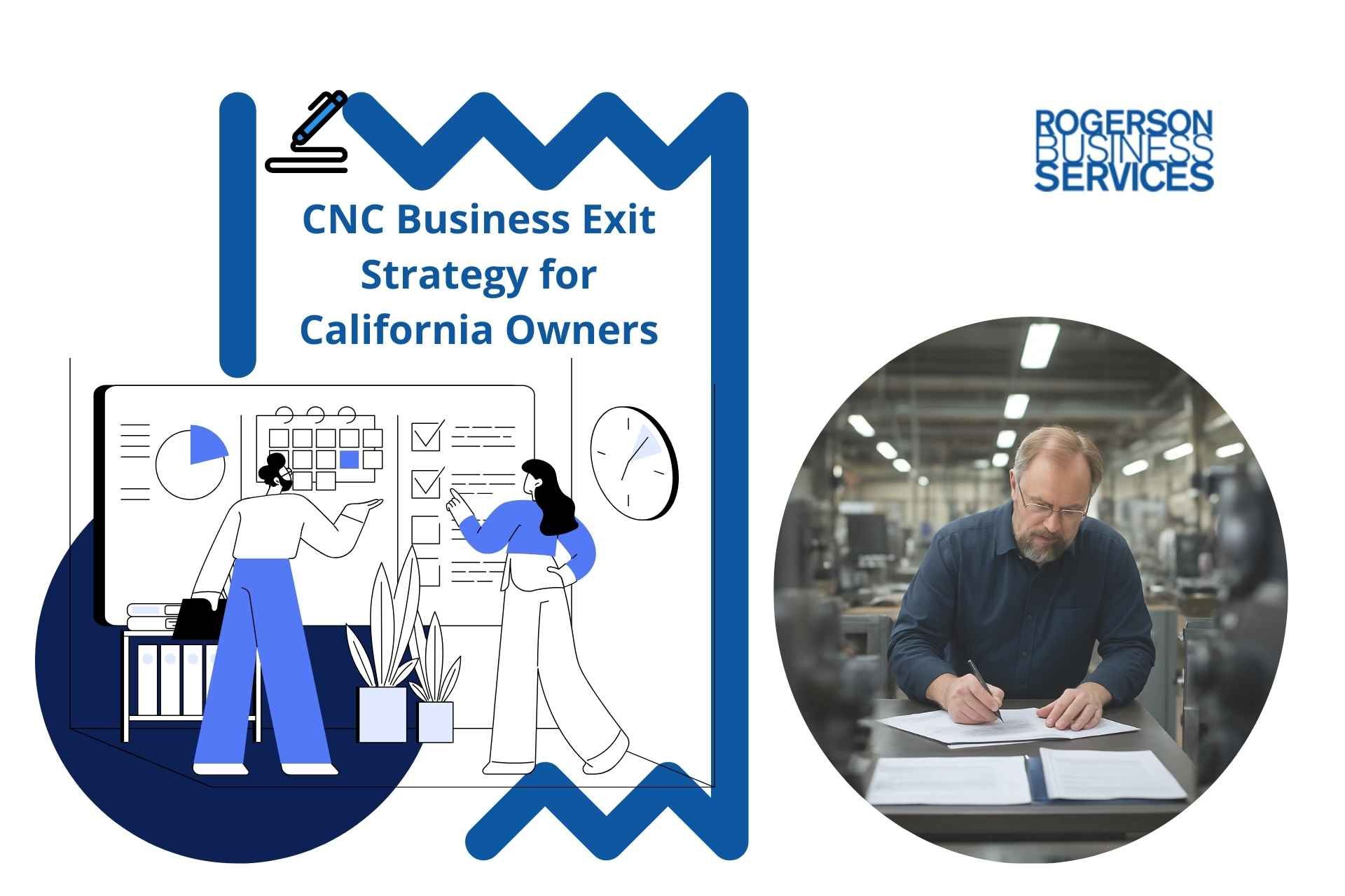The M&A Guide To Help Sell a Wholesale Distribution Business
Considering to sell a wholesale distribution business in the lower middle-market segment can be overwhelming in California. Without a proper, well prepared, exit plan, and an intermediary or professional business M&A Advisor to facilitate the sell-side M&A process, there is no way to guarantee that you made the right decision.
Get The Guide
M&A Guide
Increase Your Chance Of Success!
Guide to Help Exit a Wholesale Distribution Company
Everything you need, all in this sell a wholesale distribution business guide
Sell a Distribution Business Guide
Table of Contents
Sell a Wholesale Distribution Company
In the United States today, experts estimate that there are approximately 72 million Baby Boomers. As a Baby Boomer, you can be proud to note that your generation is certainly very diverse.
Likewise, many of you born during this time period share common attributes: independence, strong work ethics, and competitiveness.
That being said, it should come as no surprise that about 12 million Baby Boomers own a business. Closely related, it’s estimated about
70 percent
of you will be retiring over the next decade or so, leaving trillions of dollars up for grabs for entrepreneurial generations to follow.
With many of you reaching the ages of 60, 70, and older, it may be time for you to consider your business exit strategy planning as you prepare for the next phase of your life: retirement. This could mean selling a wholesale distribution business.
Top Reasons to Consider an Exit Strategy
Most business professionals will tell you that an exit strategy is certainly critical to ensuring a smooth transition of ownership from one company to another. This comprehensive plan is even helpful to business owners who intend to hand their life’s work down to a family member or next of kin.
Having this structure when putting a wholesale business for sale in California not only makes the process easier, but it ensures that a business owner can protect the value of their company and maximize their lifelong investment.
Many business owners complete an exit strategy even if they’re not looking to immediately sell their company. Some of the following explain more in-depth reasons to consider having a complete exit strategy prepared and ready for execution.
Potential Financial Opportunities
A well-prepared exit strategy will ensure you have everything you need should an offer from a buyer or an investor come your way. Exit strategies go hand-in-hand with a quality financial plan and knowledge of emerging trends in distribution, and having this information at your fingertips allows you to properly communicate with an interested party.
Tax Planning
With every business comes tax implications. Likewise, every business for sale in California, comes with its own set of tax laws. In creating an effective exit strategy, a business owner can help to minimize these implications for new ownership, which can make the transition a lot smoother and efficient.
Plus, your exit strategy can help you analyze tax costs to choose the best and lowest option. Qualified M&A advisors can help you work through your tax responsibilities.
Valuation
When putting a distribution company for sale, an owner wants to make as much money as possible while still remaining fair and ethical. A good exit strategy can help you calculate the value of your company through wholesale industry analysis with the goal of maximizing profitability and success.
Crisis Planning
Crises come in all shapes and sizes. The common factor among all crises is that no one can know when one will arise. Crisis planning in an exit strategy gives a business owner options should something life-altering occur.
Planning for any kind of crisis in your exit strategy can ensure that your business doesn’t lose profit during these times. It can also help you determine whether the crisis is significant enough to give up the business entirely.
Economic Impacts
Every small or large business experiences the effects of the market. When the market thrives, so do businesses. Likewise, when the market dips, so can your profitability.
Having a well thought out exit strategy can help owners avoid the harmful impacts of an economic recession. By applying critical factors, such as supply chain management, organization, or profits, a company can plan years in advance to stay afloat should an economic downturn appear at their doorstep.

How to Sell A Wholesale Distribution Business
The best way to sell a lower middle market company in the distribution business is to allow an M&A advisor to guide you through the process. In the wholesale distribution industry, owners may come across varying opportunities or challenges that an experienced professional can easily tackle.
For example, there are many questions that come to mind when you have California businesses for sale, such as:
- How to calculate the value of a business for sale
- How to value a distribution business
- How to value a company based on profit
- How to value a business formula
- How to sell my distribution company
If you’ve wondered about any of these questions and more, it’s probably time to contact a professional. In the meantime, business owners can learn more about wholesale distribution industry trends and preparing to sell a business.
Preparing to Sell a Business - Wholesale & Distribution Sector
Positioning a distribution business for an acquisition is a significant decision and one that should not be taken lightly. That being said, lower mid-market business owners should ask themselves some of the following questions before they make their final choice:
- Does putting middle market businesses for sale make economic sense right now?
- What are my plans for the proceeds of this sale?
- Do I still want to maintain a formal relationship with the business following the sale?
- Are there any other partners or owners involved, and are they on board with selling?
- What is the potential of online distribution business opportunities, and how do they impact me?
- How does the present value of my business compare to costs of brokers, fees, and taxes?
There are still many other questions a wholesale distribution business owner in California should take the time to consider before putting their business on the market, but these are just a few of the main considerations.
Various Types of Wholesale & Distribution Businesses
The wholesale distribution industry is an extensive and diverse market, offering many different product lines. Before you sell your company, it’s important to understand trends in wholesale distribution and how you fit into the industry.
Below is a comprehensive list of wholesale distribution business types or segments:
1.
Oil and Gas Products
The oil and gas industry is a large and thriving industry that includes the lower middle market, etc., and could benefit from lower middle market M&A Brokers. It’s composed of companies that move these energy sources.
2. Grocery and Foodservice
A large portion of grocery and foodservice is wholesale distribution. Warehouse clubs and superstores make up 23% of the US grocery market and could easily benefit from middle-market M&A Brokers and lower middle-market M&A.
3. Pharmaceutical
Pharmaceutical wholesale distributors deliver quality products to both clients and customers, serving as the go-between among facilities like hospitals and their patients.
4. Industrial
The industrial industry covers both industrial supply wholesalers and industrial equipment wholesalers - both of which can be sold for a hefty profit in the right market.
5. Electrical and Electronics
The electrical industry is always booming - especially since technology is constantly evolving. A wholesale technology distributor may be considered valuable at the time of sale with the help of a good M&A Broker.
6. Motor Vehicles and Motor Vehicle Parts
Most of us know these businesses as dealers or used car dealerships. This business can be tricky to sell, as they involve some type of wholesale motor vehicle license.
7. Miscellaneous Durable Goods
Miscellaneous durable goods distributors can include a wide range of products but most frequently involves consumer electronics like TVs and PCs along with luggage and sporting goods.
8. Agricultural Products
A wholesale agricultural distributor will sell and market various types of agricultural supplies and equipment to businesses and organizations - most often, farms and farmers.
9. Consumer Products
Consumer products can cover a wide range of wholesale distribution items, but these CPG companies all package their goods in some shape or form.
10. Computer Equipment and Software
Computer equipment and software distributors deal with a lot of technical products, large and very small. A packaging distribution business for sale like these may find it easier to maintain organization with the help of a professional.
11. Commercial Equipment and Supplies
Commercial equipment and supplies most often relate to the restaurant industry. A wholesaler of this type can create a network of restaurants to distribute their products to.
12. Metal Service Centers
A metal service center deals with a lot of stocking and inventory, which can equal a lot of paperwork when it comes time to sell. Selling and producing metal products as a lower middle market business often has perks over larger manufacturers.
13. Apparel and Piece Goods
An apparel wholesale business owner who says, “I want to sell my business” might approach an M&A advisor - even if they are an online distribution business.
14. Beer, Wine, and Liquor
As a beer, wine, and liquor wholesaler, you may be thinking, “I want to sell my business; where do I start?” A qualified M&A broker can help out a liquor wholesale business for sale.
15. Chemicals and Plastics
Any chemical distribution company for sale is going to run into a lot of red tape concerning licenses, training, etc. Any M&A Broker can help with any owner wondering, “how do I sell my business privately?”
16. Office Products and Paper
Every business needs office products and paper, so a wholesaler of these products has a great market to work with.
17. Hardware Plumbing and Heating Equipment and Supplies
Things like hardware, plumbing, and heating will never go out of style because people need these businesses to survive. Selling this wholesale business could greatly benefit business owners, as well as those buying a distribution business.
18. Furniture and Home Furnishings
Likewise, home furnishings are items that every homeowner purchases. You can contact a broker to help you get the most out of a wholesaler distributing furniture, etc.
Each of the above represents a niche within the market. For example, putting a medical wholesale distribution business for sale may look different than selling beer, wine, and liquor. Pharmaceutical wholesale business for sale will look a lot different than a liquor wholesale business for sale.
Knowing your niche in the market as well as wholesale distribution industry trends can help bolster overall success.
Wholesale and distribution businesses also come in different forms:
- Merchant Wholesalers
- Full-Service Wholesalers/Retail Wholesalers
- Limited Service Wholesalers
- Brokers and Agents
- Branches and Mini Offices
- Specialized Wholesalers
Again - knowing where your business falls in among these categories can help you coordinate your buying and selling business checklist, along with knowing the wholesale distribution market size.
Due Diligence Checklist for Selling a Business
In accordance with laws, regulations, ethics, and business practices, there are a lot of tasks you must complete before selling your company. Thankfully, your M&A advisor can support you by providing a financial due diligence checklist for selling a business.
This list of documents helps to define your business valuation, which will ultimately help you incentivize buyers to commit to the purchase. Taking a closer look at what this M&A financial due-diligence checklist can better prepare buyers for the process to come.
Operations Documents
An organized business should have all of its operational documents coordinated and on-hand at a moment’s notice. These types of documents are essential when selling a business, as they are needed during the transition of leadership.
All of your financial documents should be handy, as well as any paperwork related to licenses, leases, contractors, and personnel. An M&A advisor will let you know the documents needed to sell a business.
For example, does a chemical distribution company for sale has have all of its proper licensing to handle hazardous materials? Or are the liquor selling licenses up to date for a wine wholesale business for sale?
Data Systems
Many wholesalers and distributors utilize data systems to store and organize all of their documents, paperwork, and important information. These systems can include things like payroll, purchase orders, employee files, equipment lists, vendor relationships, and more.
As part of a due diligence list, an M&A broker might showcase how a company records and store information in its data systems.
EBITDA
Your business’s EBITDA is your earnings before interest, taxes, depreciation, and amortization. These earnings indicate your company’s overall profitability - information that is critical to a potential buyer and thus very important to your due diligence checklist.
Your EBITDA will give investors a solid idea of the financial prosperity of your company. It also lets potential buyers know how much the business is bringing in before it has to pay any debts. Any paperwork included in this section will showcase adjustments to your income statements.
Tax Consequences
During any business sale, an owner wants to make sure that they can maximize their return. With the help of a qualified M&A advisor, you can get a good idea of taxes or any other financial consequences to selling your business.
This portion of the due diligence process reviews varying price scenarios and what their outcomes are so that you and your potential investors can choose accordingly.
Business Valuation - What’s It Worth?
Diligent business owners likely re-evaluate their business’s worth about once a year. If you have been doing this with your business, then it shouldn’t be too difficult to determine its current value.
Valuation is a critical step in the selling process, as it lets you know the real worth of your company. Having that number at the forefront helps you put a price tag on the business while also guiding your responses to varying offers.
Your M&A advisor can offer several different tools towards business valuation multiples, presenting you with the numbers calculated using valuation techniques.
Factors Affecting Business Valuation
Several factors influence your business valuation. Knowing these factors and their impacts can help you make necessary decisions before it’s too late, allowing you to increase your valuation for when it’s time to sell.
Financial Performance
Studying your financial performance can be a key indicator of your company’s value. A good investor knows to not just look at your current numbers but to review financial performance dating back as far as 3 to 5 years.
These numbers can reveal certain trends that your business has seen. While you may be profitable this year, your historical financial performance might reveal revenues are trending downward.
Documents like profit and loss statements, tax returns, and balance sheets may be requested by a potential investor, and they can impact your business valuation.
Customer Base
The size of your customer base is also an important factor in determining your valuation. Customers are the heart and soul of a business, and the population can indicate how diverse your business is. A larger customer base with a diversified portfolio adds value to your company.
Growth Potential
Not only does a potential buyer want to see your past performance, but they are also heavily invested in your future potential growth. Someone investing in a new company wants to see that there’s strong potential for them to expand operations and continue to grow revenues. Otherwise, why bother investing?
Your growth potential is based on things like key industry trends, projected profits, and business strategies currently in place.
Top Client Dependence
A large, diversified customer or client base is ideal, but it’s also important for investors to know how much of your revenue comes from the top 3-5% of your customers. A company that pulls most of its revenue from a small percentage of its customers is considered risky, and therefore not valuable. Losing just one of those customers could mean the company taking a hard hit financially.
Owner Dependence
As the next potential owner of your company, interested parties like to know how dependent a company is on its current owner. Many investors who buy mid-market businesses do not intend to keep it long term. Rather, they’re looking to buy, grow, and resell.
That being said, if your company heavily relies on you as the owner to keep things operating at high levels, it could minimize its value to certain investors.
Business Valuation
What is it? Why do I need one if I'm planning to exit a business? What is the business worth?
How to Calculate Your Business’s Value
There are a few different ways you can go about valuing your business: the industry-standard multiples, discounted cash flow, and asset valuation/liquidation.
Multiples
The most common way to value a business, especially a small business, is multiple analysis. As a rule of thumb, this valuation generally sticks to a 2x revenue valuation or a 5x cash flow. Most businesses focus on either capital-intensive or non-capital-intensive valuations, meaning multiple of assets or multiple of cash flow/revenue, respectively.
Alongside your M&A advisor, you can determine which multiple to use and then apply that to your business’s financials. Doing so gives you the market value for your business.
Discounted Cash Flow
The discounted cash flow model uses projected financials to determine future cash flows, discounting those numbers back to present operations. If we’re completely honest, the DCF method is really only ideal for determining what your business is worth to you, which may not be the same as what someone is willing to pay for it.
That being said, DCFs are notoriously easy to manipulate, making them pretty unreliable. This method isn’t as widely used as the others for real valuation.
Asset-Based
An asset-based valuation involves having your M&A advisor assessing and valuing all of the assets of your business. Your business’s financial documents will come into play, including the Accounts Receivable. Your M&A Advisor will have to determine all of the cash payments due, the value of your tangible assets, and any associated costs.
The trickiest part about valuing assets for an M&A Advisor will be valuing your intangible assets. Things like a company’s reputation, name recognition, and customer base are assets that are considered “goodwill,” and though they don’t have a real monetary value, they still add to your assets.
After determining the value of your assets, your advisor will then deduct the liabilities of your business from your assets. This number will be your adjusted book value.
What Is My Wholesale and Distribution Company Worth?
Any business or company can base its value on three general numbers:
- Assets
- Liabilities
- Equity
While these numbers are typically pretty straightforward, there are also certain intangible assets, as we mentioned above, that you will need an M&A advisor to determine for you. A few of these intangible assets can be:
- Goodwill
- Licenses
- Trademarks/Patents
- Brand Recognition
- Business Methodologies
- Intellectual Property
Because these assets can be difficult to value, it’s critical that you work with a knowledgeable and experienced advisor.
All of this to say: you can sell your business for as much as the market will pay for it. As the seller, you can try to determine what that number might be, but it is ultimately up to the buyers and the offers that come in.
By knowing the value of your assets, EBITDA multiples for distribution companies, liabilities, etc., you can have a good idea of what your company is worth so you can turn down offers that are far too low.
Learn how to plan an exit for your wholesale distribution company
Sell-Side M&A
Four step process to market your California lower middle market business for sale
01 Exit Plan - business valuation
Your potential buyers can come from many areas. Employees, individual and group investors, Private Equity Groups, and even competitors who may have an interest in purchasing your business. If a competitor is interested, you don't want to reveal too much information about your business, especially anything that could hurt your business if the deal falls through.
Once you decide to sell, get your business ready, and get help from a trusted and accredited California M&A Advisor.
An M&A Advisor will vet potential buyers to make sure they are qualified and are serious about purchasing your business.
A California Licensed M&A Advisor knows the ins and outs of selling a California business and can help you get your business in shape to get you the best deal.
02 Buyer Analysis
One of the first things your M&A Advisor will do, is help you to create an exit plan. An M&A Advisor knows exactly how to plan an M&A exit strategy. In fact, you might get a M&A Advisor to help you with an exit plan long before you're ready to sell your California company.
An M&A Advisor is knowledgeable about how to calculate the value of a business to sell and will aim to get the highest value for your business. Once everything is ready to go, they'll list your business for sale. An M&A Advisor will be an expert at listing a California businesses for sale.
After your business is listed, the M&A Advisor will handle all the marketing of your business to promote deal origination and get you in front of potential buyers. They'll also set a buyer list and work with you to figure out who to go after for the best value.
03 Deal Origination - marketing
An M&A Advisor will then work to get you as many qualified and motivated buyers of your business as possible.
They will market your business through the proper channels, including social selling and targeting and generating interest. They'll vet and follow up with interested buyers whether off-market or publicly listed.
Once the offers come in, your M&A Advisor will evaluate all offers and conduct market offer analysis to make sure you're getting the best deal.
04 Negotiation & Closing
Buyer Due Diligence
Once a buyer is performing their own due diligence, the M&A Advisor will help you navigate the process to make sure everything is running smoothly. They'll negotiate a Letter Of Intent between you and the buyer to lay out the proposed aspects of the deal. Your M&A Advisor will also help you gather all of the necessary paperwork discussed above. If the buyer asks for additional documentation, your M&A Advisor can help guide you.
As a buyer is going through the due diligence process, they will be on the lookout for red flags about your business. An experienced M&A Advisor is knowledgeable about these warning signs and can help you prevent them. Red flags may include refusing to disclose why you're selling, not allowing time to conduct due diligence, refusal to introduce the buyer to employees, suppliers, landlords, and more.
Definitive Purchase Agreement
The M&A Advisor will oversee the Definitive Purchase Agreement with the help of the transaction attorneys to make sure both parties are happy with the terms. A Definitive Purchase Agreement protects both you and the buyer as it will clearly state exactly what is and is not being sold. It can also protect the buyer from certain liabilities. A Definitive Purchase Agreement will also help you deal with the legal complexities of selling a California lower middle market business.
Once the Definitive Purchase Agreement is finalized, the M&A Advisor will help with any final items that need to be done as part of the closing process including working with a California Licensed Escrow company.
Closing - Finalize the Transaction and Close the Deal
Finally, your M&A Advisor will help prepare the close of your transaction. Once the closing is complete, they'll assist with overseeing the transition of the business change of ownership.

What Is the Role of M&A Brokers in Selling a Wholesale and Distribution Company?
The main goal of an M&A broker is to help people buy and sell private businesses, but their job description entails far more than the simplicity of that statement. During the selling of your wholesale and distribution company, an M&A broker will take several specific steps to ensure a smooth and productive transaction.
Some of these steps include
marketing your business, negotiating the sale on your behalf, maintaining knowledge of wholesale technology, and striving for the very best outcome for you as a seller.
Buyer Analysis - Qualifying Potential Buyers
One of the responsibilities of an M&A broker is to find and qualify the right kinds of buyers for your wholesale distribution business. You may wonder how necessary this analysis is - after all, a sale is a sale, right?
However, with a focus on Baby Boomers, selling a business is about much more than just making a profit. A business owner often wants to know that their business will be in good hands, run by the kind of person who is looking to grow, expand, and nurture the company.
M&A advisors have the experience and know-how to tactfully analyze potential buyers by applying industry trends to single investors, corporate investors, and equity groups. They are also well-versed in handling sensitive information with confidentiality in place.
These tactics allow M&A advisors to explore potential buyer options without exposing too much information, as not every advance on an interested party will result in a closed deal. This careful vetting process protects both sellers and investors.
Exit Planning
M&A advisors understand that the best path to successfully selling a business is through the exit plan. One of the first things this professional will do for you as the business owner is design a personalized strategy to execute listing your wholesale and distribution business on the market.
Other components of the exit plan include valuing your business accurately to get you the most money from your sale. They will also go on to handle marketing activities and promotions in an effort to secure deal origination.
And, along with their buyer analysis, you can expect your M&A advisor to establish a buyer list as you both communicate who qualifies as the best targets.
Deal Origination
Next up, your advisor will strive to maximize the efficiency of your deal origination process. In other words, they will strive to ensure you have a constant flow of incoming offers in order to get you the best deal.
This step involves a lot of marketing, so it’s crucial that you have an M&A advisor who’s equipped with tons of experience and a bold, go-getter attitude. They will likely develop and implement some kind of outreach program to contact previously vetted buyers, ultimately generating solid interest in your sale.
All of these offers are, of course, thoroughly analyzed.
Negotiation: Buyer Due Diligence
Before you can sign any official sales contracts or close any deals, a business owner must complete buyer due diligence. Like we mentioned earlier, this process can take anywhere from 60 to 120 days, allowing buyers to view and request vital information concerning the business.
This process may also include a letter of intent, which is a non-binding agreement between the buyer and the seller on a proposed deal. The letter of intent serves to establish all aspects of the deal.
Following this letter, you as the seller will have to provide a number of official documents for the buyer to review. Your M&A advisor will let you know which documents are included, but the list will likely involve:
- Income Statements
- Records of Accounts Receivable and Payable
- Balance Sheets
- Tax Returns
- Business Activity Statements
- Profit and Loss Records
- Cash Deposits
- Payment Records
- Utility Accounts
- Bank Loans
- Lines/Letters of Credit
- Management Meeting
- Audit Paperwork
This list is certainly not exhaustive - there may be many more pieces of information that you must share under your letter of intent agreement. Again, you can count on your M&A broker to let you know what you need to provide.
Your list of documents for due diligence may also include documents concerning intellectual property, private details, financial systems, and credit histories. Buyers also need to review any contracts that you have with employees, clients, and other stakeholders.
While there are definitely items that you must provide a buyer, there are also things that you do not need to agree to. Having your M&A advisor present for all due diligence communications and packages can help you sort through some red flags, such as:
- Potential buyers not disclosing important information
- Failure to agree to a trial period long enough for due diligence
- Potential buyers involved in legal proceedings
- Potential buyers pushing to close a deal too quickly
- Questionable credit history
- Secretive about suppliers, landlords, estate agents, etc.
Your M&A advisor will certainly catch any of these red flags right away, so no need to worry. However, it’s still important to know what to look out for, just in case. Potential buyers boasting any of these issues can prevent a successful transition between the seller and buyer.
Negotiating the Definitive Purchase Agreement
Offering middle-market businesses for sale involves several steps. The
M&A Advisor
works closely with you and your
legal advisor, especially while negotiating and finalizing the
Definitive Purchase Agreement. This Definitive Purchase Agreement helps both parties reach their goals for the transaction and allows no room for error as it completely represents the legal wishes of each party.
A good
M&A Definitive Agreement
is the lynchpin of a good transaction. Both seller and buyer exchange a large amount of information from different sources. This is often over many months of conversations. These exchanges are then condensed, with their individual interests, as best as possible into the Purchase Agreement.
Items a typical Definitive Purchase Agreement may include:
- Treatment of Shares, Options, and any other Securities; if appropriate to the transaction
- Representations and Warranties
- Covenants
- Solicitation (“No Shop” clause)
- Financing
- Termination Fee (or “Break-Up Fee”)
- Indemnification
- Material Adverse Change (MAC) and Material Adverse Effect (MAE) Clauses
- Closing Conditions
The Definitive Purchase Agreement can have potential pitfalls, so your M&A Advisor needs to keep the communication open with the Buyer and their Deal Team as well as the Seller and their Deal Team.
The M&A Definitive Purchase Agreement also needs to include details about tax obligations and consequences, especially if shareholders are involved.
Avoiding Pitfalls if you have a Buy-Sell Agreement
What if the seller is two or more individuals?
Many businesses have multiple owners or shareholders. Getting an agreement from a majority of the shareholders about selling the business and being willing to accept an offer can be challenging. One of the shareholders may not have any interest in selling the business at all or may want something specific most buyers will not be willing to agree. If this is the case, hopefully there is a Buy-Sell Agreement in place as this will outline what each shareholder needs to do. A few years previously I had a transaction with 9 shareholders. One shareholder with a minority interest initially refused to sell. Eventually they changed their mind but it was stressful while this played out.
If no Buy-Sell Agreement is in place and there is tension between the owners and shareholders, the pressure to decide the future direction of the business may be challenging. This article provides additional information for an owner or shareholder with
how to avoid buy-sell agreement pitfalls. To help their clients, M&A Advisors should understand the importance of assumption of liability, so their buyers and sellers know who is responsible for any lingering claims.
The agreement also needs to have information about indemnity clauses regarding operations. For Wholesale Distribution Companies, concerns about environmental liability, breaches of warranties, and other issues need to be factored into the indemnity clauses of a Definitive Purchase Agreement.
Buy-sell agreements can be confusing, so it is helpful to learn
how to understand buy-sell agreements
and
how a buy-sell agreement can save a business.
Closing the Deal
After a careful review of all documents, strict adherence to any laws, and intensive negotiations, your M&A advisor can facilitate the business transaction. From here, there only needs to be a smooth transition of ownership, and then the deal is closed.
The advisor will take care of monetary necessities as well as getting all of the proper paperwork, information, contracts, etc., over to the new owner. Your deal is now closed.
Mistakes to Avoid: Selling a wholesale distribution Business in California
Experts will let you know that the biggest mistake can make when selling a wholesale distribution business in California is to not work with an M&A advisor. These professionals are trained and experienced, so it’s always best to have someone involved who knows what they are doing.
Unfortunately, those who do not work with an M&A advisor often fall prey to some of the following common mistakes, which can cause owners to downgrade their business’s value and ultimately lose out.
Disproportionate Dependence
We touched on this subject a little earlier when discussing the value of your business, and having an M&A advisor can certainly help mitigate risk in this area. When your business is disproportionately dependent, it means that the weight of its income and value is placed mainly on one customer, client, employee, or vendor.
This kind of dependence poses a huge risk, as the loss of this one critical player can result in a huge revenue loss.
Not only should you strive to expand your business to a wide range of customers and other stakeholders equally, but your business should also not mainly rest on your shoulders. That’s another huge risk and something that a potential buyer will steer away from.
Lack of a Growth Strategy
If your business is not continuously growing and moving forward, it may not be considered as successful as you’d think to potential buyers. An investor wants to acquire a business so that they can expand and make money off of it. If you don’t have a growth strategy, your business is stagnant and likely to remain so.
Growth opportunities hold tons of value in the business world. As a business owner hoping to sell for a profit, you need to be able to demonstrate how your growth strategies can benefit your buyer.
An M&A advisor can help you flesh out your growth strategies and may include items such as potential acquisitions, new geographic markets, and support for increased demand.
Minimal Cash Flow
Buyers looking to invest in a new business are looking for profit. So, the more money they have to put in, the less likely they are to buy.
A well-functioning business generates cash above and beyond the working capital requirements. The more cash flow you can generate, the more value your company has overall. Without this excess cash flow, a buyer would be forced to invest even more money, which isn’t appealing.
M&A advisors can offer strategies to help with your cash flow by accelerating accounts receivable and extending accounts payable. Encourage earlier customer payments, accept as many forms of payment as you can, and renegotiate terms with vendors to accomplish this.
Lacking Recurring Revenue
A recurring revenue model allows companies to secure predictable future revenues via a subscription-based system. These systems ensure that customers continue to spend money on their products or services, which is a reliable way to sustain business growth.
If you don’t already have a recurring revenue model, an M&A advisor is qualified to guide you through establishing that system. This strategy is widely accepted in the industry, and buyers are willing to pay top dollar for the future security of their finances.
You Represent Your Business’s Success
When you own a business, it’s hard to sell it as successful without painting yourself as the center of that prosperity. While it’s certainly an impressive feat to have a profitable business, buyers want to know that the staff and operations you’re leaving them with are enough to keep the business going.
In other words, you cannot be the sole reason for your business’s success.
M&A advisors do an excellent job of relaying to buyers how and why your business can and will thrive with them in the driver's seat. They have the ability to remain a little more objective, focusing on the success of the business and not the success of the business owner.
Free Business Valuation Guide
Learn more about business valuation and why it matters the most while planning a business exit.
Problems in Growth Through Acquisition
In general, there are two ways that you can grow your business. Either increase your sales and/or operations or acquire another company. The latter of these two, growth through acquisition, is typically the faster way to grow and is likely to positively impact future growth for the long-term.
However, there are some negatives that come along with this growth strategy. Thankfully, M&A advisors are the ideal professionals to help move things along when you run across one of these issues.
Resource Management
The process of mergers and acquisitions is not only expensive, but it’s time-consuming. An investor or another business must have the financial resources to purchase and potentially overhaul an additional company.
Along with the aspect of money comes actions that business owners might not be entirely familiar with; that’s where your M&A advisor comes into play. They can help with things like due diligence, closing deals, and even equity funding.
Management Issues
Whether you’re selling your business to a single investor or having it acquired by a larger company, you’re bound to run into some employee-management issues. Every business and business owner has their own management styles, and new management can come as a threat to personnel.
Having an M&A advisor can really help to ease these transitions and facilitate negotiations to ensure that these issues are as minimal as possible. Relationships can often be saved by using these types of professionals, and management issues don’t have to be disruptive.
Final Thoughts
Selling a wholesale business in California can be quite a stressful and seemingly never-ending process. Whether you have an ice distribution business for sale or you’re an industrial supply wholesaler, there are a number of items you have to check off your list before you’re all set to sell.
By collaborating with an M&A advisor, you can mitigate some of the headaches associated with selling your business. These advisors are fully equipped to answer questions such as:
- How do I sell my business privately?
- How much is my business worth?
- How to value a business based on revenue?
- If I sell my business, how much tax will I pay?
These questions, along with paperwork, negotiations, and buyer analysis, are just a few of the many services an M&A advisor can assist you with.
Rogerson Business Services in the lower middle market M&A segment
has the experience, expertise, and professionals you need to develop a super M&A exit strategy and smoothly transition out of your business and into the profits you’ve earned.
Need help with selling a distribution business?
Rogerson Business Services (RBS) is an M&A Advisory Firm for lower middle market businesses. RBS M&A Advisors are built on trust and ethics. Andrew Rogerson, Certified M&A Advisor, can help you find answers to all your questions, introduce you to better opportunities, and manage the buying and selling a wholesale & distribution company in California process's integrity while keeping every aspect of sales confidential.
M&A LOWER MIDDLE MARKET ADVISORY
Why Work With Rogerson Business Services?
Business Valuation
Many sellers neglect the business valuation and methodology early in the process, only to become frustrated after the deal has been finalized. Rogerson Business Services can help you understand the value of your business based on different methodologies.
Legal Due Diligence
When selling a business, the legal standing of the business determines the smoothness, efficiency, and speed at which the transaction is finalized. M&A Advisors offer a sell-side M&A process backed by the viability of a California Licensed business or transaction attorney. With a licensed California M&A Advisor, you can be certain the legal documents involved in the sell-side M&A process is detailed and accurate.
Business Analysis
To avoid wasting time with unqualified buyers, get help from a trusted, licensed, and accredited California M&A Advisor. An M&A Advisor will vet potential buyers to make sure they're legitimate and are serious about purchasing your business. An M&A Advisor knows the ins and outs of selling a lower middle market business and can also help you get your business in shape to get you the best deal.
Financial Due Diligence
Our service includes deal team professionals to assist you. From financial to legal documents to tax and procedures, we want to make sure you are covered.
If you have your own in-house team of advisors, Rogerson Business Services can help make the M&A sell-side process as easy as possible by offering insights that help the team understand and are in alignment with the same goals as yours.
Definitive Purchase Agreement
The Definitive Purchase Agreement is usually extremely complex. It is easy to overlook all the terms and legal jargon, but every paragraph is important and duly considered. It is therefore critical to ask questions and ensure you are comfortable with the final set of legal documents you need to sign.
M&A Sell-Side Targeting
Rogerson Business Services provide Mergers & Acquisition M&A Sell-Side Advisory. We zero target off-market, accretive, private equity and strategic buyers with an interest in lower to middle market companies or businesses to maximize incremental growth value.
FAQ's
Sell-Side M&A
Sell a Business
Business Valuation
Ten Reasons to Plan a Business Exit Strategy with
Rogerson Business Services
1. Ethics
Rogerson Business Services are members of the M&A Source, International Business Brokers Association (IBBA) and California Association of Business Brokers (CABB) and adhere to their code of ethics.
2. Confidentiality
Rogerson Business Services assists you professionally in a highly confidential manner to protect your personal and financial details.
3. Vetted businesses for sale
Rogerson Business Services have access to an inventory of businesses including unlisted businesses for sale in California.
4. Facilitator
Rogerson Business Services are specialists in business transitions and understand the need to respect all parties in the transaction. There are many steps to value, sell and buy a business. Rogerson Business Services have successfully navigated these steps many, many times.
5. Valuation
Rogerson Business Services can provide you an opinion of value of a business you wish to sell or buy.
6. Due diligence and escrow
Rogerson Business Services has the knowledge to work through leases, franchise agreements, finance requirements, licensing, California escrow requirement and many other items so the sale of a business is successful.
7. Negotiation
Rogerson Business Services practice win/win negotiation skills. Negotiations are rarely perfect and so a win/win approach is the best way forward.
8. Financing and funding
Rogerson Business Services has professional lenders that can assist with finance to successfully buy a business.
9. Resource
Rogerson Business Services is an active member in the associations of the M&A and Business Broker industry including M&A Source, the International Business Brokers Association (IBBA), California Association of Business Brokers (CABB), International Society of Business Appraisers (ISBA) as well as other professional organizations.
10. Closing and transfer
Rogerson Business Services works with you each step of the way. This includes managing the buying or selling of your business through initial negotiations, due diligence, escrow and the all-important closing.
We built this amazing step-by-step-guide to help "Sell a Wholesale Distribution Company" - it is yours (free)
Rogerson Business Services provide Mergers & Acquisition M&A Sell-Side Advisory. We zero target off-market, accretive, private equity and strategic byers in lower middle market companies or businesses to maximize incremental growth value.

